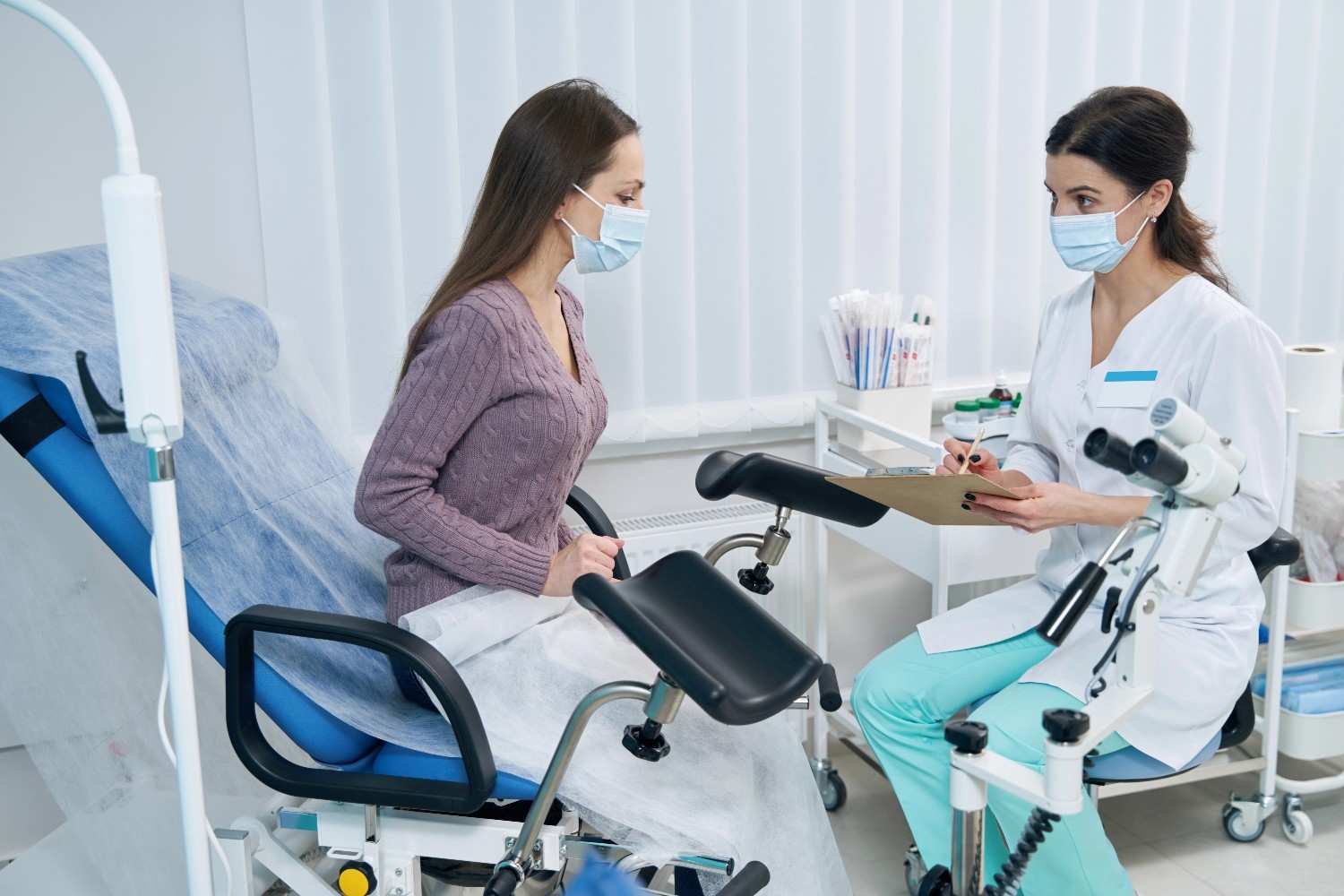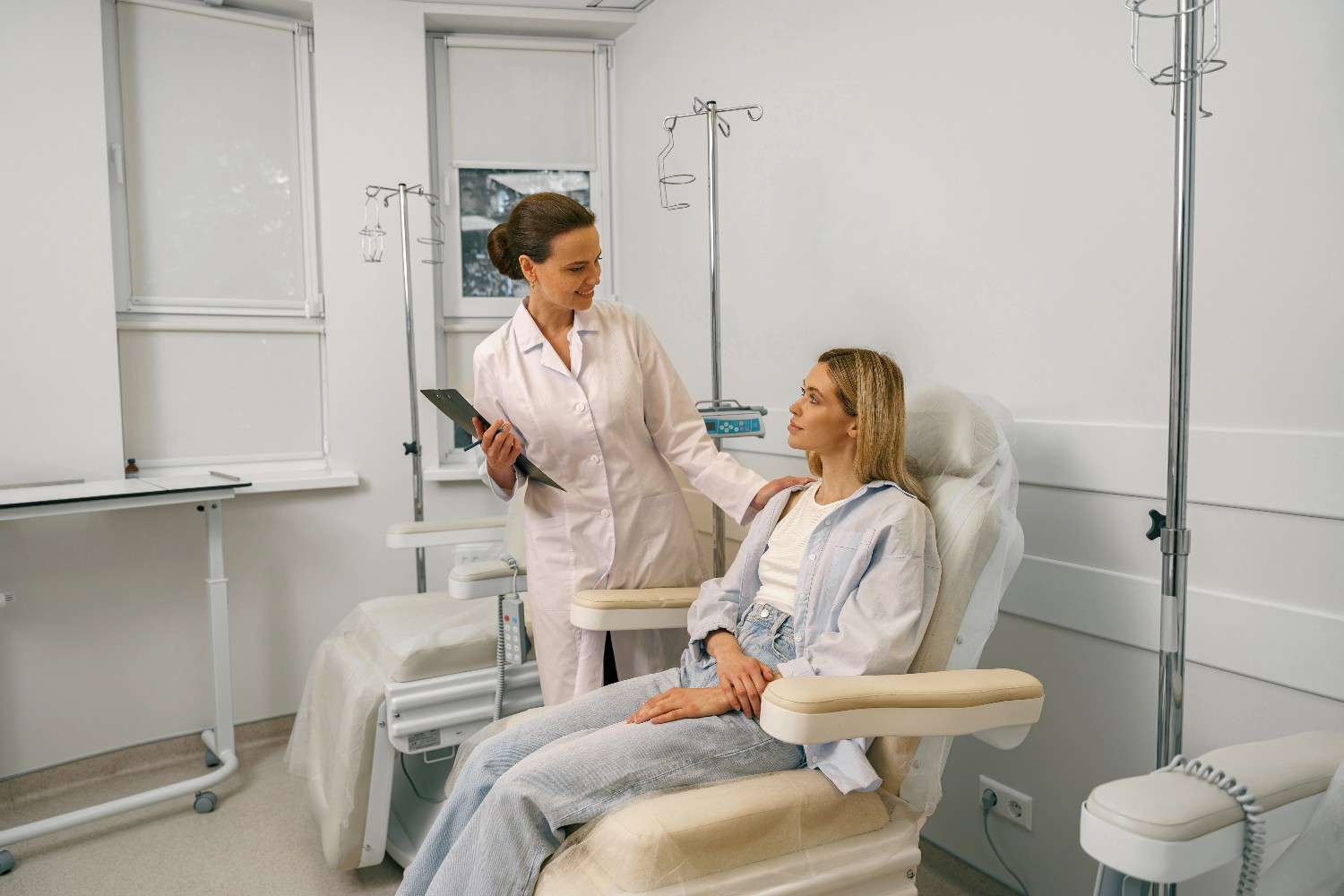Vaginitis: Causes and Treatment at NextGen Primary Care Clinica Hispana Walk-in Clinic & Urgent Care

Quick and Convenient Care
NextGen Primary Care Clinica Hispana Walk-in Clinic & Urgent Care, we offer fast, walk-in services for diagnosing and treating vaginitis and abnormal vaginal bleeding. No appointment necessary – just walk in and get the care you need promptly.
Expert Medical Evaluation
Our healthcare providers perform thorough exams and diagnostic tests to identify the cause of your symptoms. Whether it’s bacterial, yeast infections, or other issues, we’ll accurately diagnose and create a treatment plan.
Personalized Treatment Plans
From antibiotics and antifungals to hormone therapy, we offer customized treatments designed to target the underlying cause of your condition, helping you recover quickly and restore your well-being.
Confidential and Compassionate Care
At NextGen Primary Care, we prioritize your privacy and comfort. Our compassionate, professional team ensures you feel respected and supported throughout your treatment journey.

Vaginitis refers to inflammation of the vagina that can result in discomfort, itching, abnormal discharge, and other symptoms. It is a common condition that can affect women of all ages and can have various underlying causes. At NextGen Primary Care, we provide quick and effective care for vaginitis, offering accurate diagnosis and appropriate treatments to help alleviate your symptoms and improve your health.
What is Vaginitis?
Vaginitis refers to the inflammation or infection of the vagina, which is a common gynecological issue that can affect many women at different points in their lives. This condition can lead to symptoms such as vaginal discomfort, abnormal discharge, and itching, which can significantly impact a woman’s quality of life. The underlying causes of vaginitis can vary widely, and it is important to seek medical advice for proper diagnosis and treatment.
Symptoms of Vaginitis and Vaginal Bleeding
Symptoms of Vaginitis:
Itching or Irritation
A common symptom that causes discomfort in and around the vaginal area.
Unusual Discharge
Vaginal discharge that may be thick, white, or yellowish, often accompanied by a fishy odor.
Pain During Intercourse
Vaginal pain or a burning sensation that occurs during sexual activity.
Burning Sensation
A feeling of burning, particularly when urinating.
Swelling or Redness
Swelling, redness, or irritation around the vaginal opening, which can be a sign of infection or inflammation.

Possible Causes of Vaginitis and
Vaginal Bleeding in Non-Pregnant Women
These symptoms and causes highlight the importance of seeking professional medical evaluation if you’re experiencing any of the listed signs, especially when they are persistent or unexplained. Early intervention can help to address underlying conditions and provide appropriate treatment.

Symptoms of Vaginal Bleeding
Irregular Bleeding
Bleeding that occurs between periods, after sexual intercourse, or post-menopause.
Heavy Periods
Experiencing unusually heavy menstrual bleeding that lasts longer than normal.
Painful Bleeding
Abnormal bleeding accompanied by pelvic or abdominal pain that can be disruptive.
Spotting
Light bleeding or spotting outside of the usual menstrual cycle, often a sign of hormonal imbalance or other conditions.
Treatment Options for Vaginitis and Vaginal Bleeding
Abnormal vaginal bleeding requires a comprehensive treatment plan that targets the underlying cause. Below are common treatment options for managing vaginal bleeding:
At NextGen Walk-in Clinic & Urgent Care, we prioritize your health and well-being, ensuring you get the treatment you need quickly, effectively, and with the utmost care.
Why Prompt Care for Vaginal Health Issues is Essential
Vaginal health is an important aspect of overall well-being, and addressing issues like vaginitis and abnormal vaginal bleeding as soon as they arise is crucial for maintaining your health. These conditions, although common, can sometimes indicate underlying medical concerns that need timely diagnosis and treatment. Ignoring symptoms or delaying care could lead to complications, prolonged discomfort, or worsening of the condition.
For conditions like vaginitis, the inflammation or infection of the vagina, early treatment can help alleviate symptoms like itching, abnormal discharge, and pain, preventing further irritation or infection. Abnormal vaginal bleeding, whether due to hormonal imbalances, infections, or more serious conditions like fibroids or polyps, requires prompt attention to determine the cause and receive appropriate treatment.
At NextGen Walk-in Clinic & Urgent Care, we offer convenient, walk-in access for quick and accurate diagnosis, along with compassionate and comprehensive care. Our healthcare professionals are trained to provide the care you need for your vaginal health concerns, ensuring that you receive the right treatment in a private and supportive environment.

Understanding the Different Types of Vaginitis
Vaginitis is a common condition that refers to inflammation or infection of the vagina. It can cause discomfort, unusual discharge, and other symptoms. There are different types of vaginitis, each with its own set of causes, symptoms, and treatment options. The most common types of vaginitis include bacterial vaginosis (BV), yeast infections, and trichomoniasis. Understanding these types is essential for effective diagnosis and treatment.

How to Prevent Vaginitis
While some cases of vaginitis may be inevitable, there are steps you can take to reduce your risk of developing the condition:
Practice safe sex by using condoms.
Avoid douching, as it can disrupt the natural balance of vaginal bacteria.
Keep the vaginal area clean and dry, but avoid using harsh soaps or fragrances.
Wear loose, cotton underwear and avoid tight-fitting clothing that can trap moisture.
Maintain a healthy diet and manage stress to support your immune system.
Common Myths About Vaginal Health
Vaginal health is an important aspect of overall well-being, but there are many misconceptions that can lead to confusion and misunderstanding. From hygiene practices to menstrual health and vaginal infections, these myths can influence how women care for themselves. It’s essential to debunk these myths and provide evidence-based information to empower women to make informed decisions about their health. Let’s take a look at some of the most common myths about vaginal health and set the record straight.
Patient Testimonials
At NextGen Primary Care, our patients are at the heart of everything we do. We’re deeply grateful for the trust they’ve placed in us, and we’re honored to hear about the positive experiences they’ve had with our compassionate care, quick service, and dedicated team. Here’s what a few of our patients have shared about their time with us:
Contact Us
At NextGen Primary Care, we understand the importance of accessible healthcare, which is why we offer convenient hours and flexible scheduling. Our clinic is here to serve you, whether you need urgent care, primary care, or specialized treatment.
Address
6306 Gulfton St #203,
Houston, TX 77081
Consultation Schedule
Mon – Wed: 9:00AM – 7:00PM
Thu – Fri: 9:00AM – 6:30PM
Sat: 9:00AM – 4:30PM
Get in Touch
Phone: 281-888-7289
Email: info@nextgenpcp.com
Follow Us
Visit NextGen Walk-in Clinic & Urgent Care for Your Vaginal Health
Don’t wait for your symptoms to worsen. If you’re experiencing vaginitis or abnormal vaginal bleeding, visit NextGen Walk-in Clinic & Urgent Care today for fast, reliable care. Whether you need medication, diagnostic tests, or a referral to a specialist, our team is here to provide the support you need. We make it easy for you to get the care you deserve without an appointment, offering a professional and discreet environment for your gynecological health concerns.
If you’re experiencing vaginitis or abnormal vaginal bleeding, visit NextGen Walk-in Clinic & Urgent Care today for fast and reliable care. Your health is our priority, and we’re here to help!
Convenient
Location
Call or Walk-In.
No Appointment Needed
Personalized care plans











